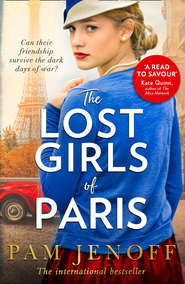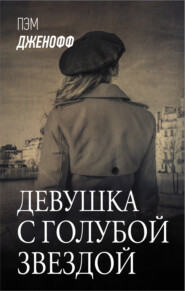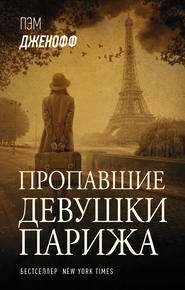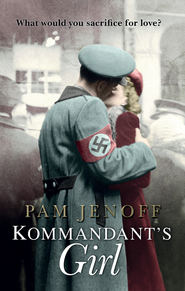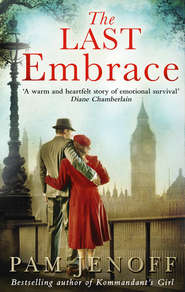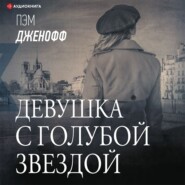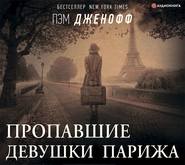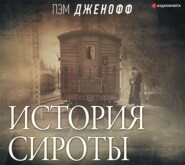По всем вопросам обращайтесь на: info@litportal.ru
(©) 2003-2024.
✖
The Winter Guest
Автор
Год написания книги
2018
Настройки чтения
Размер шрифта
Высота строк
Поля
“Southern Poland, Małopolska. You’re about twenty kilometers from the city.”
“Kraków?” Helena nodded, sensing from his expression that her answer was not what he expected. “That puts us about an hour from the southern border, doesn’t it?”
“Roughly, yes. Perhaps a bit more.”
His face relaxed slightly. “You’re real.” She cocked her head. “I thought I might have been delirious and dreamed you. And then I wasn’t sure you were coming back.”
“I’m sorry,” she replied quickly. “It’s hard to get away.” He had rugged features, an uneven nose and a chin that jutted forth defiantly. But his eyelashes were longer than she knew a man could have, and there was a softness to his gaze that kept him from being too intimidating.
“I didn’t mean it that way,” the man added. “Just that I’m glad to see you again.” A warm flush seemed to wash over her then, and she could feel her cheeks color. “I don’t think I introduced myself properly. Sam Rosen.” He held out his hand. “I’m American.” His deep voice had a lyrical quality to it, the words nearly a song.
“But you’re speaking Polish.”
“Yes, my grandparents were from one of those eastern parts by the border that was Poland when it wasn’t Russia. They used to speak Polish with my mother when they didn’t want the children to understand what they were saying. So I had a reason to try to figure it out.” The corners of his mouth rose with amusement.
She shook his outstretched hand awkwardly. He had wiped the blood from his face, she noticed, leaving a narrow gash across his forehead. “You’re looking better,” she remarked, meaning it. There was a ruddiness to his complexion that had not been there before. His hair was darker than she remembered it, almost black. A healed scar ran pale and deep from the right corner of his mouth to his chin.
“Thanks to you,” he replied, his eyes warm. “Bringing me here saved my life. And the food you left did me a world of good.” He made it sound as though she had left him an entire feast and not just a handful of bread.
“A bit more,” she said, passing him another piece of bread, slightly larger. His fingers brushed against her own, coarse and unfamiliar. “I’m sorry that’s all I could manage.” She could not take any of the scarce sheep’s cheese or lard they needed for the children.
“You’re very kind.” His voice was full with gratitude. He tore into the bread with an urgency that suggested true hunger. Of course, the morsel she’d left him last time would not have lasted a day, once he was able to eat. She noticed then a pile of leaves—he must have dragged himself outside to forage. “They taught us in training which things we could eat, roots and such. And I’ve managed to drink some rainwater.” He gestured across the chapel to a puddle that had formed where it had rained through the opening in the roof. “I’m sorry not to get up,” he added. “My leg is still a mess. But I don’t think it needs to be set.”
She looked around the chapel—the wooden pews had rotted to the floor and there was no sign of any pulpit, but fine engravings were still visible on the walls, faded images of angels and the Virgin Mary at the front. “It’s a good thing I found you,” she said, sounding more pleased with herself than she intended. “The path is just off the main road. Someone else might have turned you in to the police for favors or food.”
“What about animals?” he asked. “Are there wolves?”
She hesitated. “Yes.” His eyes widened. She did not want to alarm him, but other than sparing Ruth the occasional bit of reality, it was not in Helena’s nature to lie. Once the wild animals had clung to the high hills, content to feed on small prey. But with food sources growing scarce, they’d become bolder, venturing down to the outskirts of the village to steal livestock.
“Here.” Helena opened her bag. She had looked around the hospital ward while visiting her mother earlier, searching for whatever supplies she could take to help him. There had only been a few rags and a small bottle of alcohol lying on one of the nurse’s carts and she didn’t dare to risk looking in the supply closet or any of the cupboards. She handed the bottle to him. “I brought you these, too.” She pulled out the wool coat and thick gray sweater that had been her father’s. Sam took the sweater and put it on, swimming in its massive girth. She hoped he could not detect the smell of liquor that lingered, even after it had been washed.
“Thank you. My jacket must have been stripped off with the parachute. It’s probably hanging from a tree somewhere.”
So he had fallen from the sky, after all. “So you jumped?”
He nodded. “Before the plane crashed. The weather forced us to fly farther north than we should have, I think, and the pilot had to go off course. At first we received orders to turn back, but we had all agreed that we were too far gone for that—we wanted to see the mission through. Then something went wrong with the plane. We knew we were going to have to wild jump, that means just land anywhere, as well as we could.” She imagined it, leaping from the plane in darkness and mist, not knowing what lay below. “I wasn’t sure my chute was going to have time to open. It did, but I got caught in a tree. When I was trying to free my chute, I fell from the tree and, well...” He gestured to his leg. “The rest you know.”
Sam opened the bottle and doused the cloth, then pressed it against the gash on his forehead, grimacing. He shivered and there was a sudden air of vulnerability about him, as though all of the foreign bits had been stripped away.
“I’ll be right back,” she announced. Before he could respond, Helena rushed outside to the grassy patch above the chapel, collecting an armful of sticks to make a fire. She stopped abruptly. What was she doing coming to the woods to tend to this stranger, risking discovery at any moment? Caretaking had never been in her nature. It was Ruth who nurtured the others, Michal that cared for small, hurt animals. And she had her family’s well-being to think about. She had done enough, too much, her sister would surely say.
Helena eyed the path back toward the village. She could just turn and go, now. But then she remembered the gratitude in the soldier’s eyes as he had taken the food from her. She was his only hope. If the Germans came, though, she would be arrested, leaving her family helpless. She had to think of them first. One had to be practical in order to survive in these times. She would build the soldier a fire before going and that was all.
She returned with her armful of kindling, which she carried to the small stove in the corner. He frowned. “It isn’t right, you hauling wood for me.”
Helena fought the urge to laugh. She carried enough wood to keep her family warm—the small pile of kindling was nothing. Still, she was touched by his concern. “It’s fine.” The wood was too damp, she fretted as she broke it into pieces. But when she struck the match she’d brought from home and touched it to the pile, it began to burn merrily.
“Thank you,” Sam said, sliding closer along the floor as she closed the grate. The tiny flames seemed to make his dark eyes dance. He winced.
“Is it very painful?” she asked.
“It isn’t so bad when I’m still, but when I move, it’s awful.”
“Let me.” She walked to him and slowly helped him inch closer to the fire, letting him lean on her for support, feeling his muscles strain with the effort of each movement.
“There is one other thing...” He hesitated. “I’m so sorry to ask, but I’d like to wash if that’s somehow possible.” She’d noticed it earlier, his own masculine earthy scent, stronger than it had been last time she was here. “Perhaps some water?”
“Let me see what I can find.” Helena went back outside to where she had seen a rusty bucket lying by the drain. She picked up the bucket and walked uphill several meters to the stream. She moved slowly on her return, taking care not to spill. “It’s cold,” she cautioned as Sam took it from her, his hand brushing hers.
He cupped his hand and drank from the bucket hurriedly. Then he splashed the water on his face, not seeming to mind as the icy droplets trickled down his neck. “That feels great.”
He pulled off the sweater and unbuttoned his shirt. She blushed and half turned away; out of the corner of her eye she caught a glimpse of his back where it met his shoulder, muscle and bone working against the bare, pale skin as he bathed. She sucked in her breath quickly, then held it, hoping he hadn’t heard.
Her heart hammered against her ribs. “Pan Rosen...” she began, lowering herself to the ground as he dried himself with his torn shirt.
“Sam,” he corrected. Sam. In that moment, he was not a soldier, but a man, with an open face and broad smooth cheeks she wanted to touch. He pulled on the sweater she had given him once more. “And may I call you Hel...” He faltered.
“Helena,” she prompted.
“Helena,” he repeated, as if trying it on for size. “That’s quite a mouthful. May I call you Lena?”
“Y-yes,” she replied, caught off guard. All of the other children had pet names, Ruti, Mischa—but she had always been Helena.
“Lena,” he said again, a slight smile playing at the corners of his lips. His shoulders were broad, forearms strong. Sitting beside him, she felt oddly small and delicate.
She struggled to remember what she wanted to say. “What are you doing here, Sam? Are the Americans coming to help us?”
“No.” Her heart sank. The talk of the Americans entering the war had been growing in recent months, whispered everywhere from the hospital corridors to the market in the town square. And if the Americans weren’t coming yet, then what was he doing here? “That is, I mean...” He broke off. “I really can’t say too much,” he added apologetically. Then he frowned again. “You must be taking a terrible risk coming here.”
Not really, she wanted to say, but that would be untrue. “Everything is dangerous now,” she replied instead. In truth, finding him was the most exciting thing that had happened to her in years, maybe ever, and she had been eager to return. “Especially going to see my mother.” She told him then about sneaking in and out of Kraków, her near-encounter with the jeep. “Of course, if not for the German I would never have come this way and found you.” She could feel herself blush again.
He did not seem to notice, though, but continued staring at her, his brow crinkled. “I wish you wouldn’t go to the city again.”
Helena was touched by his concern, more than she might have expected from a man she just met. “That’s what my...” She stopped herself from telling him about Ruth, the fact that she had a twin. She did not want to acknowledge her prettier sister. “There are five children in the family, including me. I’m the one who has to go check on Mama. My father is gone and there’s no one else to make sure she’s cared for.”
Helena’s thoughts turned to her mother. She’d actually seemed better today. For once she’d been awake and hadn’t mistaken Helena for her sister. And she had reached for the bread that Helena offered. For a second, Helena had hesitated; she had hoped to keep the extra food for the soldier. She was overcome with shame and had quickly broken the bread and moistened it. “Pani Kasia says that they’re going to kill us,” Mama had announced abruptly as she chewed, gesturing to the woman in the bed next to hers. She had an unworried, slightly gossipy tone as though discussing the latest rumor about one of the neighbors back home.
Inwardly, Helena had blanched. She had worked so hard to shield Mama from the outside world. But the hospital was a porous place and news seeped through the cracks. “She’s a crazy old woman,” Helena replied carefully in a low voice. For months she had done her best to keep the truth from her mother without actually lying to her, and she didn’t want to cross that line now.
“And sour to boot,” Mama added, smiling faintly. There was a flicker of clarity to her eyes and for a second Helena glimpsed the mother of old, the one who had baked sweet cakes and rubbed their feet on frigid winter nights. There were so many things she wanted to ask her mother about her childhood and the past and what her hopes and dreams had been.
“Mama...” She turned back, then stopped. Her mother was staring out the window, once more the cloud pulled down over her face like a veil, and Helena knew that she was gone and could not be reached.
“It’s so brave of you to make that journey every week,” Sam said, drawing her from her thoughts. His voice was full with admiration.
“Brave?” She was unaccustomed to thinking of herself that way. “You’re the brave one, leaving your family to come all the way over here.”
“That’s different,” he replied, and a shadow seemed to pass across his face.






